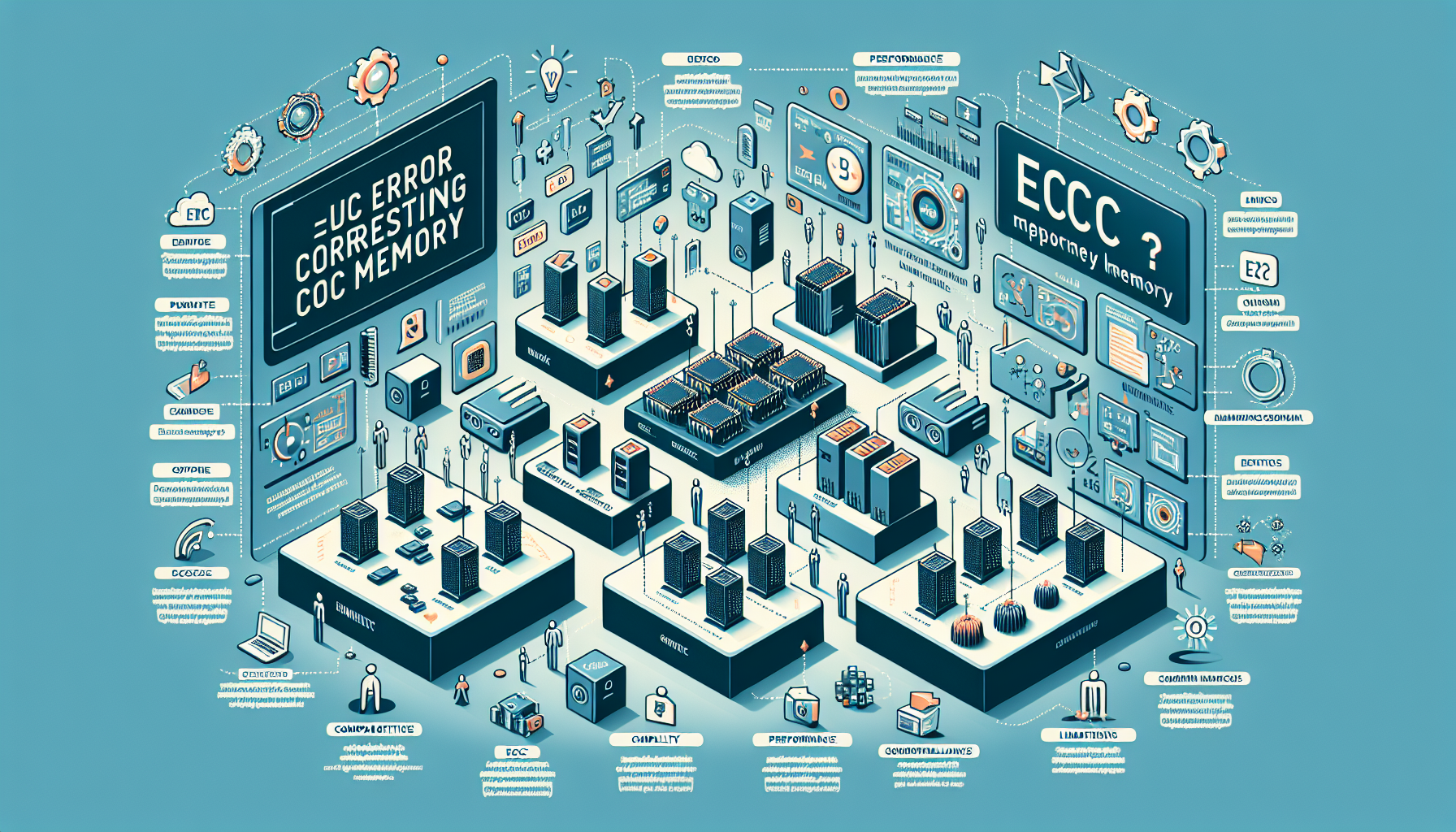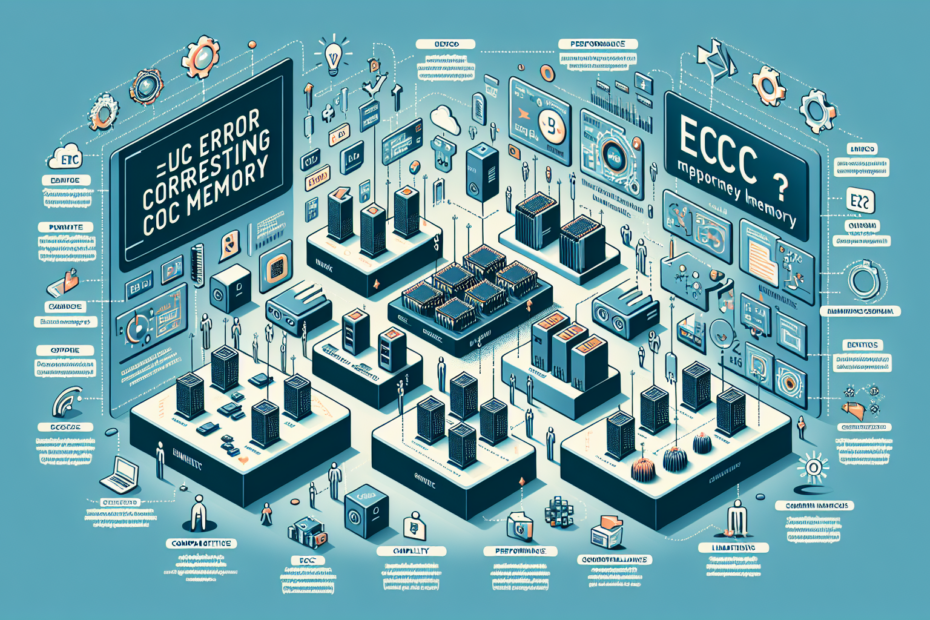



Are you curious about whether mini PCs have the capability to support ECC memory? In this article, we will explore this question and provide you with the information you need. Mini PCs are increasingly popular due to their compact size and portability, but ECC memory is often associated with larger, more powerful systems. Join us as we uncover whether mini PCs can indeed accommodate ECC memory, offering you a deeper understanding of these versatile computing devices.

What is ECC Memory?
ECC memory, or Error Correcting Code memory, is a type of computer memory that is designed to detect and correct single-bit errors, and in some cases, multi-bit errors as well. It is commonly used in servers and workstations where data integrity is crucial. ECC memory works by adding additional bits to each data word stored in memory, allowing the memory controller to detect and correct errors.
What are Mini PCs?
Mini PCs, as the name suggests, are compact-sized computers that offer a lot of computational power in a small form factor. They are designed to be portable and space-saving, making them an ideal choice for environments with limited space. Mini PCs are used in various settings such as home entertainment, gaming, office work, and industrial applications.
Compatibility of Mini PCs with ECC Memory
Mini PC Form Factors
Mini PCs come in different form factors, such as mini-ITX, NUC (Next Unit of Computing), and compact desktops. The compatibility of ECC memory with mini PCs depends on the supported form factor of the specific model. It is important to check the specifications of the mini PC to determine if it supports ECC memory modules.
CHIPSET Limitations
Another factor that determines the compatibility of ECC memory with mini PCs is the chipset used in the motherboard. Not all chipsets support ECC memory, so it is crucial to consider the chipset compatibility before opting for ECC memory in a mini PC.
Operating System Support
The operating system used in a mini PC also plays a role in the compatibility of ECC memory. While most modern operating systems, such as Windows 10 and Linux distributions, support ECC memory, it is still important to ensure that the specific operating system being used is compatible with ECC memory.
BIOS Support
The BIOS, or Basic Input/Output System, is responsible for initializing and configuring hardware components in a computer system. The BIOS settings play a crucial role in enabling or disabling ECC memory support. It is essential to check the BIOS settings of a mini PC to determine if ECC memory can be used.
Power Consumption Limitations
Mini PCs are designed to be compact and energy-efficient, which means they often have lower power consumption compared to traditional desktop computers. However, ECC memory modules typically consume more power compared to non-ECC memory. It is important to consider the power consumption limitations of a mini PC when deciding to use ECC memory.
Advantages of Using ECC Memory in Mini PCs
Using ECC memory in mini PCs offers several advantages. Firstly, ECC memory ensures data integrity by detecting and correcting errors in real-time. This is especially important in critical applications where data accuracy is paramount. ECC memory can prevent data corruption that could lead to system crashes or incorrect calculations.
Another advantage of ECC memory is its ability to improve system stability. By correcting errors at the hardware level, ECC memory prevents system crashes and random errors that can disrupt workflow. This is particularly beneficial in tasks that require continuous and uninterrupted computing, such as server applications or video editing.
ECC memory also provides peace of mind for users who heavily rely on their mini PCs for important work. The error detection and correction capabilities of ECC memory offer a level of reliability that standard memory modules simply cannot match.

Disadvantages of Using ECC Memory in Mini PCs
While ECC memory offers significant advantages, there are also some drawbacks to consider. Firstly, ECC memory modules are generally more expensive compared to non-ECC memory modules. This cost difference can be a significant factor when considering the overall budget for a mini PC build.
Additionally, ECC memory consumes more power compared to non-ECC memory. As mini PCs are designed to be energy-efficient, the increased power consumption of ECC memory modules may result in higher energy costs. It is important to consider the balance between data integrity and power efficiency when deciding to use ECC memory in a mini PC.
Performance Impact of ECC Memory on Mini PCs
Using ECC memory can have a slight impact on the overall performance of a mini PC. ECC memory modules have higher latency compared to non-ECC memory due to the additional error correction processes. This can result in slightly slower memory access times, leading to a minor decrease in overall system performance.
However, the performance impact of ECC memory is generally negligible for most everyday computing tasks. The advantages of data integrity and system stability offered by ECC memory often outweigh the minor performance impact. It is worth noting that the performance impact may be more noticeable in resource-intensive applications such as gaming or heavy multitasking.
Implementation of ECC Memory in Mini PCs
Cost Considerations
One of the primary considerations when implementing ECC memory in mini PCs is the cost. ECC memory modules are generally more expensive compared to non-ECC memory modules. It is important to consider the budget constraints and the specific requirements of the intended use of the mini PC. If data integrity and system stability are of utmost importance, investing in ECC memory may be justified despite the higher cost.
DIMM Slot Availability
Mini PCs have limited space for hardware components, including memory modules. It is crucial to ensure that the mini PC has available DIMM slots to accommodate ECC memory modules. Checking the specifications or consulting the manufacturer’s documentation will provide information on the number of available DIMM slots.
ECC Memory Module Compatibility
Not all ECC memory modules are compatible with every mini PC. It is essential to check the specifications and requirements of both the mini PC and the ECC memory modules to ensure compatibility. Paying attention to factors such as module format, speed, and voltage requirements will ensure a seamless integration of ECC memory in the mini PC.
Installing ECC Memory in Mini PCs
Installing ECC memory in a mini PC is similar to installing non-ECC memory modules. Care should be taken to properly align the memory module with the DIMM slot and apply even pressure to ensure a secure connection. Referencing the mini PC’s documentation or seeking guidance from the manufacturer can provide specific instructions for installing ECC memory.
Mini PC Manufacturers and ECC Memory Support
Different mini PC manufacturers have varying levels of support for ECC memory. Some manufacturers offer mini PCs specifically designed to support ECC memory, while others may have limitations or restrictions. It is important to research and consider the specific models and manufacturers that offer ECC memory support before making a purchasing decision.
Conclusion
ECC memory can be compatible with mini PCs, but it is important to consider various factors such as form factor compatibility, chipset limitations, operating system support, BIOS settings, and power consumption limitations. Using ECC memory in mini PCs offers advantages such as improved data integrity and system stability. However, there are also some drawbacks to consider, including higher cost and slight performance impact. By carefully considering the implementation factors and researching mini PC manufacturers that offer ECC memory support, users can make informed decisions about incorporating ECC memory into their mini PC builds.
Disclosure: As an Amazon Associate, I earn from qualifying purchases.



